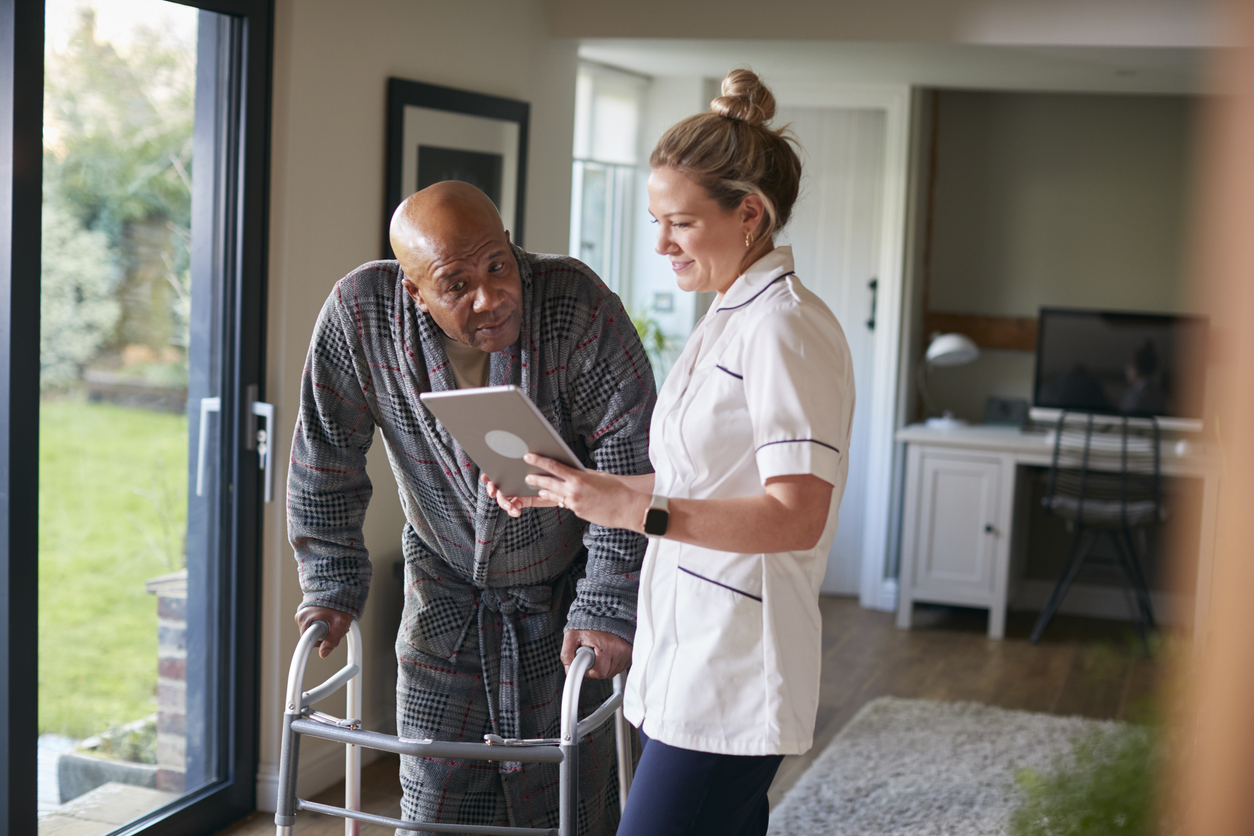With nearly 16000 facilities and close to two million residents across the United States, nursing homes represent a significant portion of the long-term healthcare industry. As their counterparts in other healthcare sectors adopt new technologies, nursing homes lag behind, potentially putting their financial and patient security at risk. Just as nursing home insurance protects against liability risks, technology can improve resident care, streamline operations, and prevent injury. In this guide, we will explore the technologies nursing homes must embrace to ensure continued success well into the future.
The Technology Gap in Nursing Homes
Nursing homes and senior centers have been historically slow to adopt new technologies. The phenomenon is more pronounced in suburban and rural facilities, owing to tight budgets and poor understanding of the potential benefits to be found in technology solutions. Many nursing homes simply prefer to do things the “traditional” way, believing that personalized care cannot be replaced by electronic devices. Unfortunately, this mindset can put residents at risk.
As hospitals, urban clinics, and urban nursing homes incorporate new technologies into their operations, nursing homes may be missing out. Some of these technologies – many under the health information technology classification — include:
- Electronic health records
- Networks for transmitting and sharing records
- Telehealth applications and services
- Patient monitoring and security systems
- Electronic communication between caregivers and specialty providers
- Electronic medication management systems
- Mobile devices for point-of-care service delivery
The nursing homes that have not invested in health IT solutions run the risk of delivering inadequate care to their residents. If records are not accurately maintained or able to be shared quickly, transitions in care such as hospital admissions can result in medication errors, injuries, or even death. The liabilities associated with failing to accurately monitor patient health put a strain on even the most robust nursing home insurance policy.
Benefits of Technologies in Nursing Homes
Technologies have been shown to improve efficiency and safety for the healthcare sectors that have adopted them. On their own, electronic health records have revolutionized care delivery, giving diverse healthcare teams quick access to records no matter where a given patient may be. These records are available to providers if a resident must be transferred to a hospital or specialty clinic, facilitating continuity in care delivery.
Technology solutions such as door alarms, closed-circuit video monitors, and building security systems reduce instances of elopement, which can put vulnerable seniors at risk of injury or death. Medication management systems reduce inaccurate or inappropriate dosing of medicines, slashing the health and safety risks associated with medication errors. With both of these technologies, caregiver staff demands are lessened; this is a boon to many long-term care facilities struggling with staffing shortfalls. These technology-based systems can improve operational efficiency and accuracy, giving staff the tools necessary to do more with less.
Ultimately, the addition of technologies to nursing homes represents an investment toward success; these high-tech additions to healthcare delivery ensure a competitive and robust future, putting nursing homes in line with other medical facilities in terms of capability and information sharing. Nursing home owners often see the costs associated with implementing these systems without fully understanding the risk management benefits that more than outweigh investment in the technologies. With staff efficiency improved and medical errors under control, facility residents enjoy improved safety. Automation and electronic patient records networks help to reduce claims against nursing home insurance policies, keeping insurance premiums in check. This is a powerful cost-saving strategy, especially as premiums continue to rise across the country.
About Caitlin Morgan
Caitlin Morgan specializes in insuring assisted living facilities and nursing homes and can assist you in providing insurance and risk management services for this niche market. Give us a call to learn more about our programs at (877) 226-1027.


